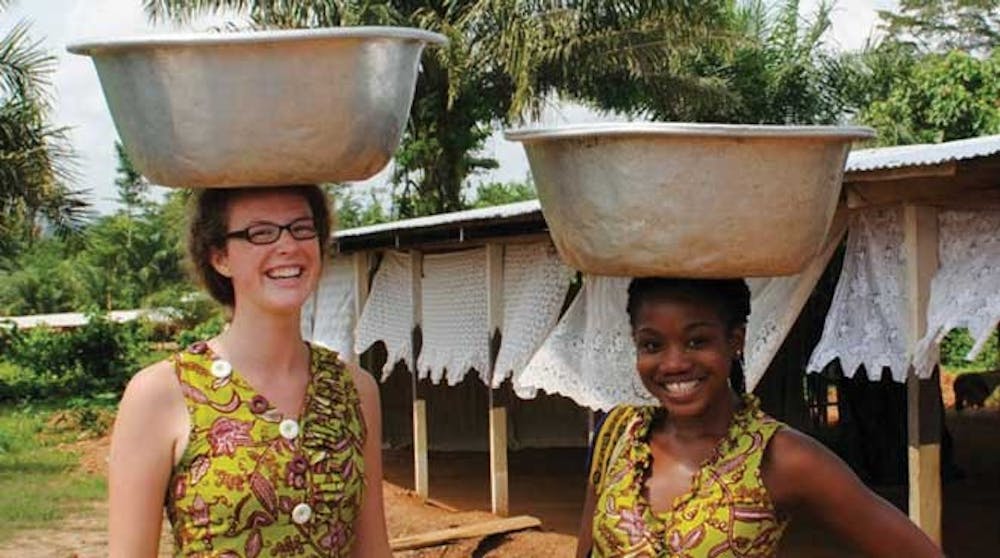The grant will provide start-up money to purchase farming equipment from local sellers, she said, and the equipment will expand current farming projects for women in the village. Twelve percent of the revenue will go toward providing health services, she said.
In Ghana, the center of the household is the mother, Smith said. Women are the center of society, and Smith's project will continue the tradition of focusing on women, she said.
This past summer, Smith lived in Cape Coast, Ghana, and interned with H.E.P.E.N.S. (Health Protection and Environmental Sanitation), a foundation that strives to promote quality health and an enabling environment for the people in Ghana. Throughout the summer, Smith participated in health talks and regular blood pressure checks, she said.
Through working with these villagers, Smith said she noticed that it was expensive for villagers to obtain certain medicine for illnesses such as malaria. Healthcare in Ghana costs the equivalent of 15 U.S. dollars, she said, yet it is unattainable for many villagers.
"In these villages, even small things such as receiving Malaria medication can be the difference between life and death," she said. When creating her project proposal, Smith wanted to start a project that could help address such issues, she said.
Additionally, Smith noticed that current farming projects in the villages did not have the proper equipment and were not drought or flood resistant, she said. Smith coupled these two issues in her project and designed a proposal that addressed the revitalization of farms and the creation of a fund to pay for health services.
To address sustainability, the farm will focus on crops such as maize and cassava, which are more resistant to drought and flood, she said. Smith hopes that 2 percent of revenue will go toward a farm insurance fund, she said.
Women already work on the farms regularly, Smith said, and this will be kept consistent. Additionally, H.E.P.E.N.S. hired a volunteer farmer who will provide expertise to help the farm succeed, she said.
Senior David Davenport, who won the Project for Peace award two years ago, used the grant to establish a chicken farm in Uganda at a primary school where the revenue from the farm went toward the cost of educating the students. When Davenport left, the farm had about 500 chickens, and now there are more than 1,000.
"What's really good is that the grant enables you to empower others to help themselves," Davenport said. "The key thing you are doing is that you see a need, you talk to people about how to fix it and you go about working together on a situation."
"You provide the money, but in the end the project is theirs," he said.
Smith will return to Ghana for about six months after graduation this May to watch the project get on its feet, she said.
Enjoy what you're reading?
Signup for our newsletter
"If I hadn't come to UR and had these experiences abroad and on campus, I would not be in the same place that I am right now," she said.
Each year, Richmond students submit proposals to the Projects for Peace competition, and one student is chosen as the campus winner. The campus winner's proposal is then sent to the Davis Projects for Peace competition and that organization selects a final winner. Sherzel found out she had been chosen as the overall winner earlier this semester.
Contact reporter Jessica Racioppi at jessica.racioppi@richmond.edu
Support independent student media
You can make a tax-deductible donation by clicking the button below, which takes you to our secure PayPal account. The page is set up to receive contributions in whatever amount you designate. We look forward to using the money we raise to further our mission of providing honest and accurate information to students, faculty, staff, alumni and others in the general public.
Donate Now



